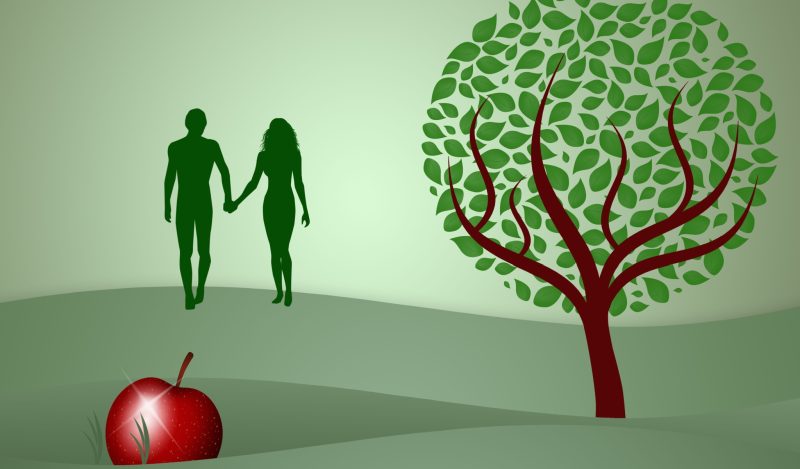Of all the objections to the Covid-industrial complex you did not expect, chief among them ought to rank Gracia Grindal’s religious protest poems, Epistles to Eve.
Publisher and blurber alike, perhaps, were less comfortable with Grindal’s verses than they liked to let on. There is little to indicate from the cover what you’re getting yourself into. If anything, you’d expect something vaguely feminist, since these are after all 33 sonnets written by a woman poet to the mother of us all.
Grindal has some thoughts about Eve’s reputation, and Adam’s misdeeds, certainly. But they are far from the focus here. As you eavesdrop on Grindal’s queries to the first woman, you find yourself meditating on the strangeness of humanity’s discovery of itself on this planet.
For whether you take a strictly creationist view, an aeons-long evolutionary view, or some hybrid in between, we know so little about where we started. Details are minimal and patchy and may mislead more by omission than anything else.
So Grindal peppers Eve with affecting questions. “How did Adam learn to read your face?” she asks in “Touch,” imagining the “mirrored look” shared between this first couple learning their own faces in each other’s, “teaching each other how bodies rhyme.” Or, how did Eve learn to sing? Was it while the first babe grew in that first womb, making “Choruses of psalms in waking bones?” How did Eve distinguish taste from poison? How did she grieve the first death? The enormity of the task presses from all sides, what it meant to “study nature to begin / Raising a world of culture from your sin.”
These are not idle questions of protology. They are urgent questions asked in the depths of a civilization that seems hellbent on taking away all the things Eve first encountered: faces, touch, singing, shared meals, gatherings to grieve. Grindal is begging for help. “Dear Eve, I want your knowledge as tyrants mock / Centuries of careful thought that helped us through…Now dusty fragments drifting away like sand, / Columns of graceful marbles splintered to death, / Apocalyptic ashes in my hand.”
So Grindal pleads with Eve to teach us once again how “to read, freed of our eyeless masks, / Aspects of features in a dimple’s dance.” “Listen! the virus says / Silence, stopping the music;” Eve must teach us to sing again. Grindal glimpses Eve “ambling through fecund Paradise / Free from a hand that issues in the dark / Decrees banning the company we keep, / Etchings of Eden fading in our sleep.” Eve had to rebuild once the angels barred her return to the garden, where she “had to shape a place / From fragments…Synecdoches of Eden in your house.”
It is no surprise that the most potent are the poems on “Illness” and “Dying.” “They issue edicts against invisible germs / Whose parliaments gather in learned cells.” Grindal wonders, “When Adam caught a cold / Chilled by the dank miasmas from the ground, How did you treat?” Not by social distancing, but by “doctoring him with your human arms.” This is a far cry from the mandated abandonment of the sick and dying: “To care for them, we peer through walls of glass, / Press against windows, panes chilling our skin. / Fearing mortality, we watch them pass / Without a tune, a scent, or touch that binds / Their bodies to us.”
And why this abandonment? The sonnet “Fear” spells it out: “We study the curriculum of fear: / It bleeds like acid and seeps between us / Sending us to our rooms with little cheer, / Eating away at our social joys and trust / Making wide spaces for governors to rule. / Afraid to gather against their tyrannies / Like rote learners in a despotic school.”
You might expect the sequence to turn darker and darker. Instead, it turns to reverie on the sheer interpenetration of all things on earth, a criss-crossing that no legal edict or fear-monger can gainsay. Grindal turns the panicked fear of the other’s breath back toward the original divine gift of life: “…raising wet clay from death, / Breathing into our lungs the air of heaven. / He fills us with invisible drafts of life / To quicken our cells, the flesh that we were given, / Spreading the germ of life so we survive.” “Water” is a delightfully off-putting meditation on all the places the liquid goes—including in and through living bodies—while “Air” revels in how “The trade winds in the southern hemisphere / Blow microbes from the churning Magellan Straits / Over to Africa, riding the atmosphere / People inhale, unable to isolate / Their bodies from creation.”
Stirringly, the last sonnet in the set is entitled “Courage.” It looks beyond this life to the next, but eyes on the next life are without a doubt what gives Grindal the courage to name the evil powers that would take away all that makes this life the good that it is. Sometimes you have to go all the way back to the beginning to find the way forward.
Order Epistles to Eve and Other Poems by Gracia Grindal from Finishing Line Press.
Join the conversation:


Published under a Creative Commons Attribution 4.0 International License
For reprints, please set the canonical link back to the original Brownstone Institute Article and Author.









